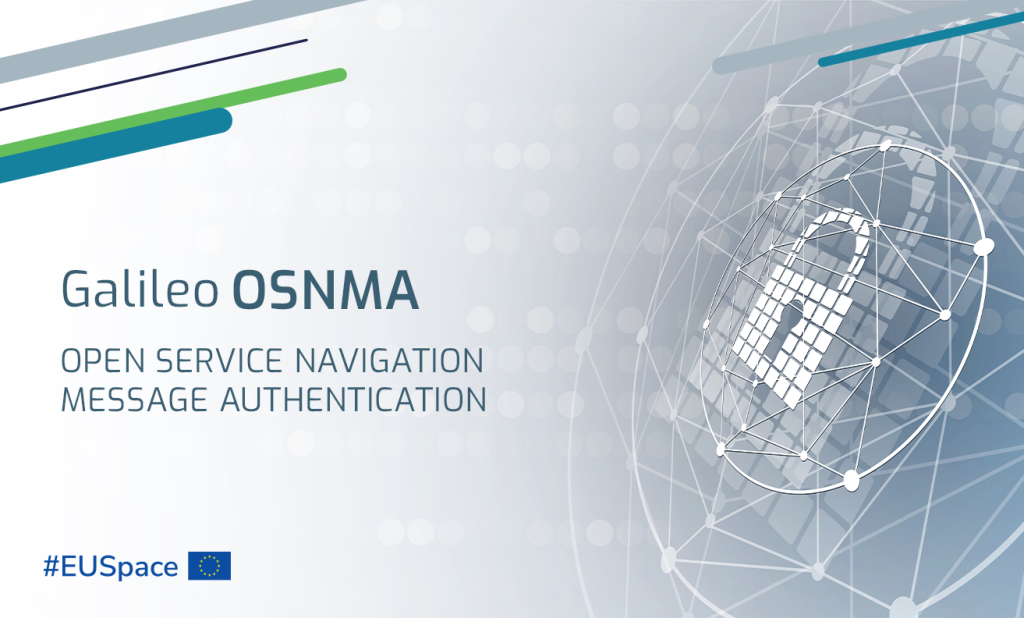From Testing to Operations: Galileo OSNMA Service Now Available to Users

On 1 September 2025, the European Union Agency for the Space Programme (EUSPA) and the European Commission hosted a webinar gathering more than 300 participants from across the worldwide GNSS community. The event provided an opportunity to detail the specific features of the new Galileo Open Service Navigation Message Authentication (OSNMA), declared operational on 24 July 2025 by EUSPA.
Speaking at the webinar, Rodrigo da Costa, EUSPA Executive Director, recalled the importance of this milestone, “With OSNMA, the European Union is once again at the forefront of satellite navigation innovation. By providing authentication to civilian users, Galileo strengthens trust, robustness, and security in applications when it matters most.”
Participants learned not only about the technical principles behind OSNMA, but also how companies are already integrating the service into commercial products and applications. The high attendance reflects the growing interest in authentication services at a time when threats to Global Navigation Satellite System (GNSS) signals, such as spoofing, are on the rise.
Slides from the webinar presentations are available below for further consultation.
Strengthening GNSS Resilience
In the context of increasing cyber- and signal-related threats, EUSPA continues to provide enhanced services to civilian users, targeting stronger robustness and security for positioning and timing solutions. OSNMA represents the first step in this direction.
In November 2021, Galileo became the first constellation worldwide to broadcast an open authentication signal, launching the OSNMA Public Observation Phase. Managed by EUSPA, this extensive testing campaign allowed GNSS manufacturers, integrators, and application developers to validate the service across diverse scenarios using live Signal-in-Space (SiS).
Performance consistently met or exceeded expectations, triggering early market uptake, demonstrating how industries and companies were ready to embrace the new capability, as confirmed by the list of already available OSNMA capable receivers.
Initial Service Declaration
The declaration of the OSNMA Initial Service on 24 July 2025 was a milestone for the Galileo Programme with an immediate regulatory impact. OSNMA is now a mandatory technology for the new generation of Smart Tachographs (version 2), ensuring that the European Union’s road transport sector benefits from authenticated, tamper-proof satellite navigation data.
To benefit from the service, receivers must implement the OSNMA protocol and retrieve certified public keys from the European GNSS Service Centre (GSC) website.
Next steps
EUSPA, having overseen the operation and security accreditation of OSNMA’s infrastructure, is now responsible for ensuring the service is delivered at the high quality expected by users to foster the service adoption across various market segments, including for critical applications such as civil aviation.
At the same time, work is already underway on future evolutions of OSNMA, informed by user needs and technological advances. Stakeholders are consulted through mechanisms such as the User Consultation Platform (UCP) to align service evolution with operational requirements.
The launch of OSNMA Initial Service is only the beginning. EUSPA, the European Commission and Industry will continue to ensure the highest performance level, develop guidelines, engage with user communities, and ensure widespread adoption across sectors.
With OSNMA now operational, Galileo continues to set the standard for secure, reliable, and innovative satellite navigation services worldwide.
About Galileo
Galileo, the EU´s Global Navigation Satellite System (GNSS), provides improved navigation, positioning and timing information. More than 4 billion users are already benefitting from Galileo.
The Galileo Programme is owned by the EU. The European Commission, as the Programme Manager, oversees the implementation of all activities. EUSPA is responsible for the operational management of the services, ensuring that they are delivered with the defined performance and without interruption. Galileo's system design and system evolution are entrusted by EUSPA to ESA .
Media note: This feature can be republished without charge provided the European Union Agency for the Space Programme (EUSPA) is acknowledged as the source at the top or the bottom of the story. You must request permission before you use any of the photographs on the site. If you republish, we would be grateful if you could link back to the EUSPA website.
Downloads
-
- Language
- EN
- File type and size
- PDF, 1.36 MB
-
- Language
- EN
- File type and size
- PDF, 1.8 MB
-
- Language
- EN
- File type and size
- PDF, 3.2 MB
-
- Language
- EN
- File type and size
- PDF, 836.96 KB